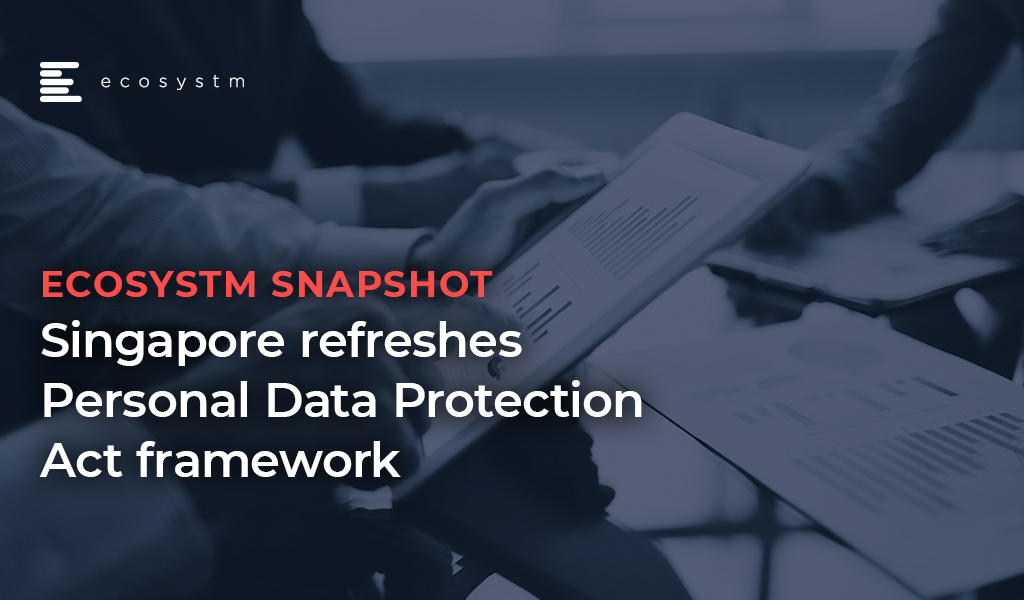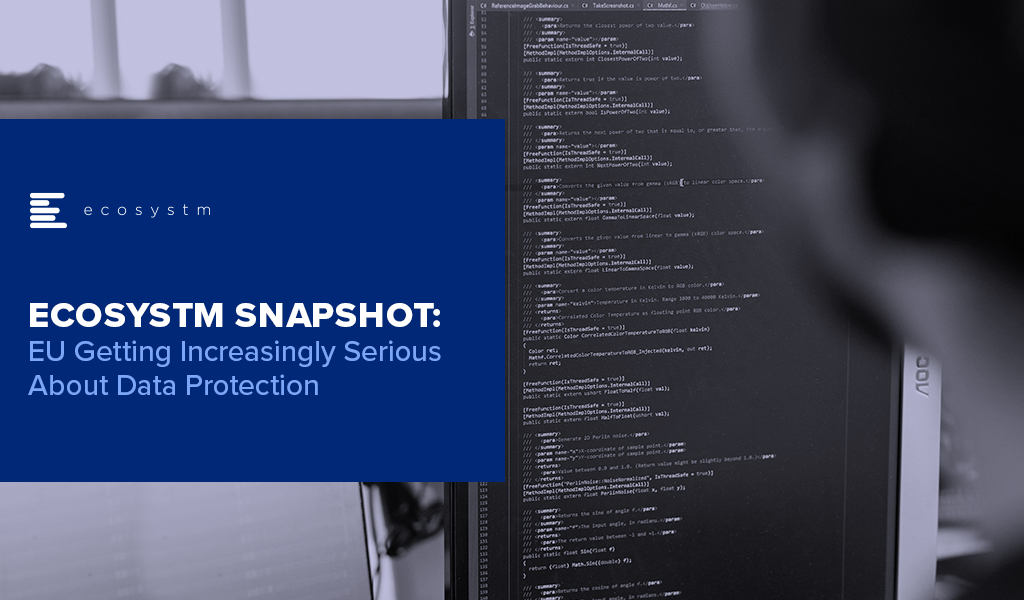
At the 7th Personal Data Protection Seminar, Minister for Communications and Information S. Iswaran announced a framework to bolster Singapore’s digital economy and to drive Singapore’s vision of turning the country into a regional data protection hub.
The Personal Data Protection Commission (PDPC), which oversees the country’s Personal Data Protection Act (PDPA), has developed a new framework to better support organisations in the hiring and training requirements of Data Protection Officers.
Why the Need?
PDPA has been around for a while and the new framework is brought into practice to enable a greater focus of government and organisations on data privacy. According to Ecosystm’s expert on GDPR and Data Privacy, Claus Mortensen, “the initiative reflects the difference between ‘theory’ and ‘practice’ when it comes to data security. PDPA is not making changes to the present regulatory framework, but they are putting together a program and guidelines for how companies can apply and abide by the present regulatory framework.”
Ensuring PDPA framework compliance
The PDPC plans to collaborate with the National Trades Union Congress (NTUC), Employment and Employability Institute (e2i) and NTUC LearningHub to create a year-long pilot training program to train at least 500 data protection officers in its first intake. The Data Protection Officers would help to manage the complex and highly sensitive task of data flows.
To ensure the data flow mechanisms and to ensure security, Infocomm Media Development Authority (IMDA) has been appointed as Singapore’s Accountability Agent (AA) for the Asia-Pacific Economic Cooperation (APEC) Cross Border Privacy Rules (CBPR) and Privacy Recognition for Processors (PRP) Systems certifications. IMDA will allow Singaporean organisations to be certified in APEC CBPR and PRP Systems for accountable data transfers.
“The PDPA requires a data protection officer to be appointed in every organisation. This framework is focused on educating and certifying these officers. However, it mostly makes it easier for slightly larger companies who can afford to send employees on longer training programs or who are able to hire people, who have taken the certificates. Smaller organisations – such as start-ups – would benefit more from detailed guidelines and from on-premises guidance. Establishing a framework for such services could be the next area of focus for the PDPC.” said Mortensen.
Legislature for the data handling and exchange practices
The private data has become an increased target of hackers as well as an international commodity. Attackers always mine the cyberspace for any leaks or financial information that they can exploit to their advantage.
“Managing sensitive data is notoriously complicated – especially for ‘legacy’ companies that still have or rely on non-digitised data. Even when all data is digital, employees may have copies on their PCs, they may have partial backups on removable media, some data may need to be shared with sub-contractors, moved around between cloud providers, etc. This can make it very difficult to map out PDPA relevant data in the organisation. Even when the data has been mapped, it can be difficult to ensure that all business and data processes are compliant. This is where on-premises guidance can make a difference,” said Mortensen. “While the government clearly aim the new framework initiatives at helping SMEs, it will help further protect consumer’s sensitive data.”
Importance of Cyber Security
A business harnessing digital technology can’t afford to gamble with sensitive data and rising cyber-attacks. The government is taking initiatives by forming guidelines and regulations to prevent cyber-attacks, but it is the responsibility of businesses to have a cybersecurity strategy in place to prevent a breach. If a business becomes a victim of hacking, it is perceived as a failure to the company.
The government passed the PDPA law and compliance to ensure that businesses understand the importance of cybersecurity. Therefore, every business, organisation or academic institution must ensure compliance with the data protection act and must have security best practices to safeguard the data of its customers.






